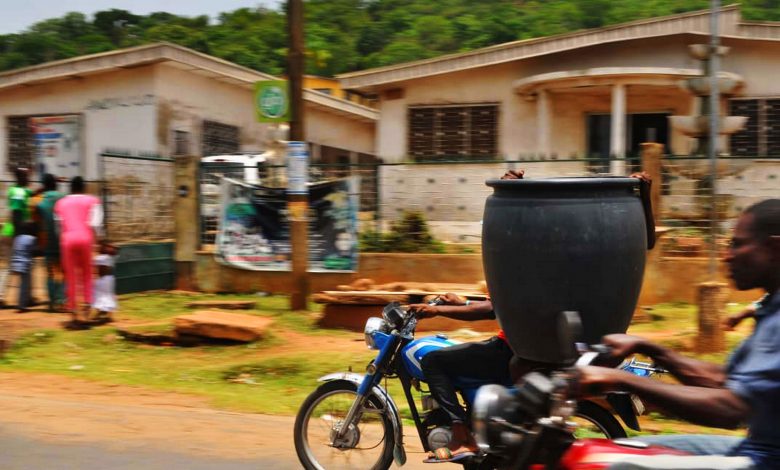Nigeria’s Water Crisis Endangers COVID-19 Fight
As Nigeria moves into the community spread of Covid-19 pandemic, the emerging realities have become of greater concern. To fight off the spread of the virus at the community level, the provisions of amenities in rural communities needs to be urgently put in focus. In this report, Tobore Ovuorie brings out sobering realities of rural communities even within prime states and asks very uncomfortable questions regarding access to potable water in her tour of communities across regions of Nigeria.
Following an intervention from the Wole Soyinka Centre for Investigative Journalism (WSCIJ), there was an opportunity to examine how limited access to potable water in rural communities could translate to the Achilles heel in the on-going fight against the spread of the novel coronavirus.
Travelling across different parts of the country we documented what translates to the daily water experiences of Nigerians.
With COVID-19 as the common enemy across the globe, Nigeria, Africa’s most populous nation, is battling frantically to curb its spread.
Daily statistics of confirmed cases by the Nigeria Centre for Disease Control (NCDC) indicate more Nigerians are contracting and spreading the virus, although testing remains extremely limited.
Dr. Osagie Ehanire, Nigeria’s Minister of Health, recently told a group of journalists, “We have passed that era when people used to think that COVID-19 was something for big men and big women who came from abroad.”
The country is now in the community transmission phase of the deadly virus, he explained.
Nigeria’s erroneous step
While the Nigerian government has been expanding test and quarantine centres in various parts of the country, it has largely failed to address one of the most basic preventive measures: access to clean water.
Television, radio jingles and other publicity materials keep instructing and depicting Nigerians washing their hands with water and soap under running taps. But regular hand-washing under flowing taps is a luxury for many Nigerians.
In fact, the 2017 Multiple Indicator Cluster, shows that Nigerian households mainly depend on external sources such as water cart-pushers, popularly known as Mai-ruwa in many parts of the country, for their daily water needs. This is because most homes do not have potable water within their premises.
Global agencies such as the World Health Organization (WHO) say no fewer than 60 million Nigerians lack access to potable water and that not more than 10 per cent of Lagos State residents are connected to the public water supply source.
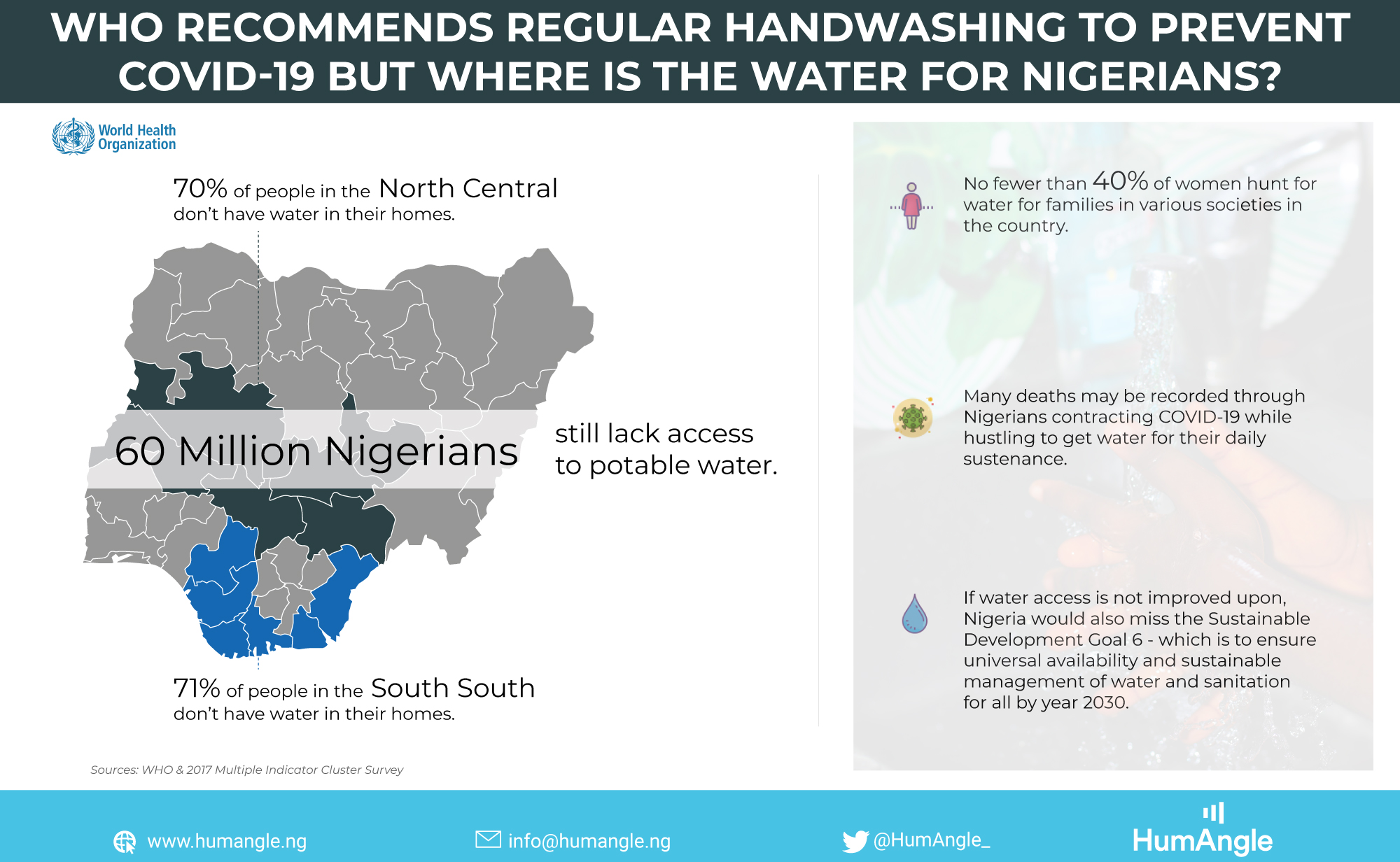
Dr Adebayo Adedeji, a virologist and former director of Laboratory Sciences at NCDC, says the novel coronavirus not only calls attention to the quality of water Nigerians can access but the means by which they access it.
International standard practice is that nobody should go more than 100 meters before accessing potable water. But this is not the case for over 60 million Nigerians who have to micromanage the water they often get from unsafe sources, such as open wells and water vendors.
Adedeji warns that man-to-man transmission of COVID-19 can happen if proper preventive measures such as healthy hand hygiene against contracting and spreading the virus are not observed during the process of fetching water.
Here are some of the photos that give more vivid narration of the daily water experiences of Nigerians:
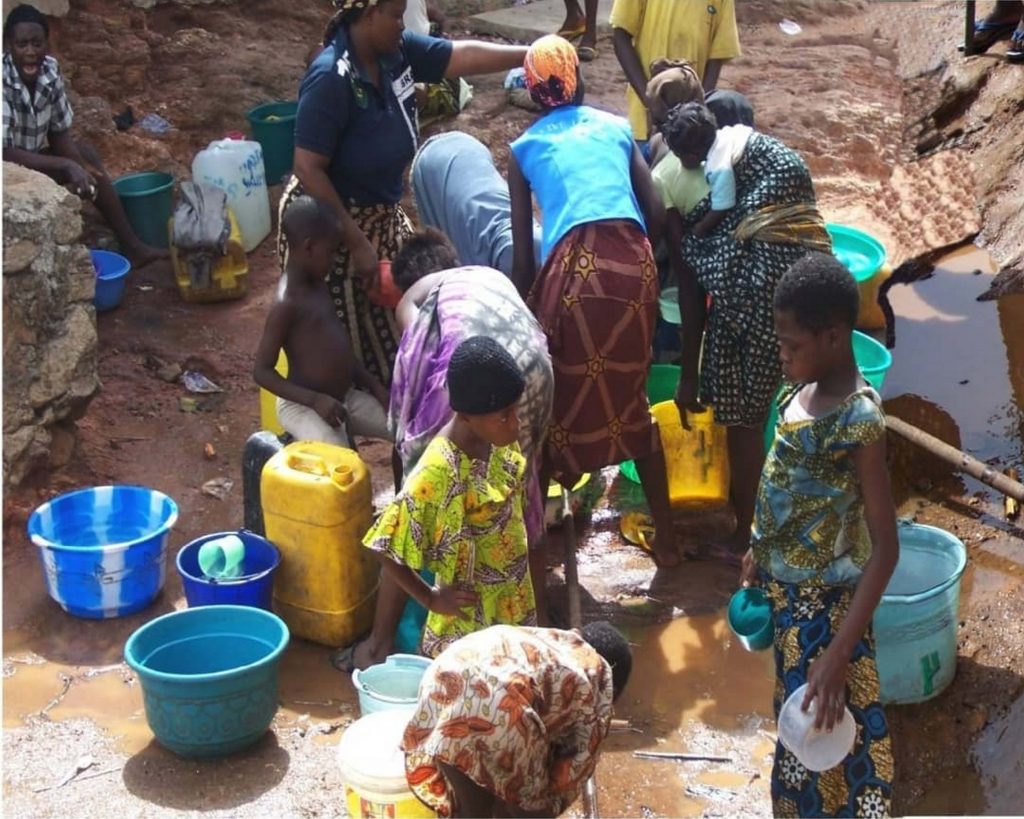
Many deaths may be recorded when community spread of COVID-19 meets Nigerians in the daily water access experience as this one recorded in Osogbo, Osun State.
If water access is not improved, Nigeria would also miss the Sustainable Development Goal 6- which is to ensure universal availability and sustainable management of water and sanitation for all by 2030. The Goal guarantees safe and affordable drinking water for everyone, substantially reducing the number of people suffering from water scarcity, amongst others.
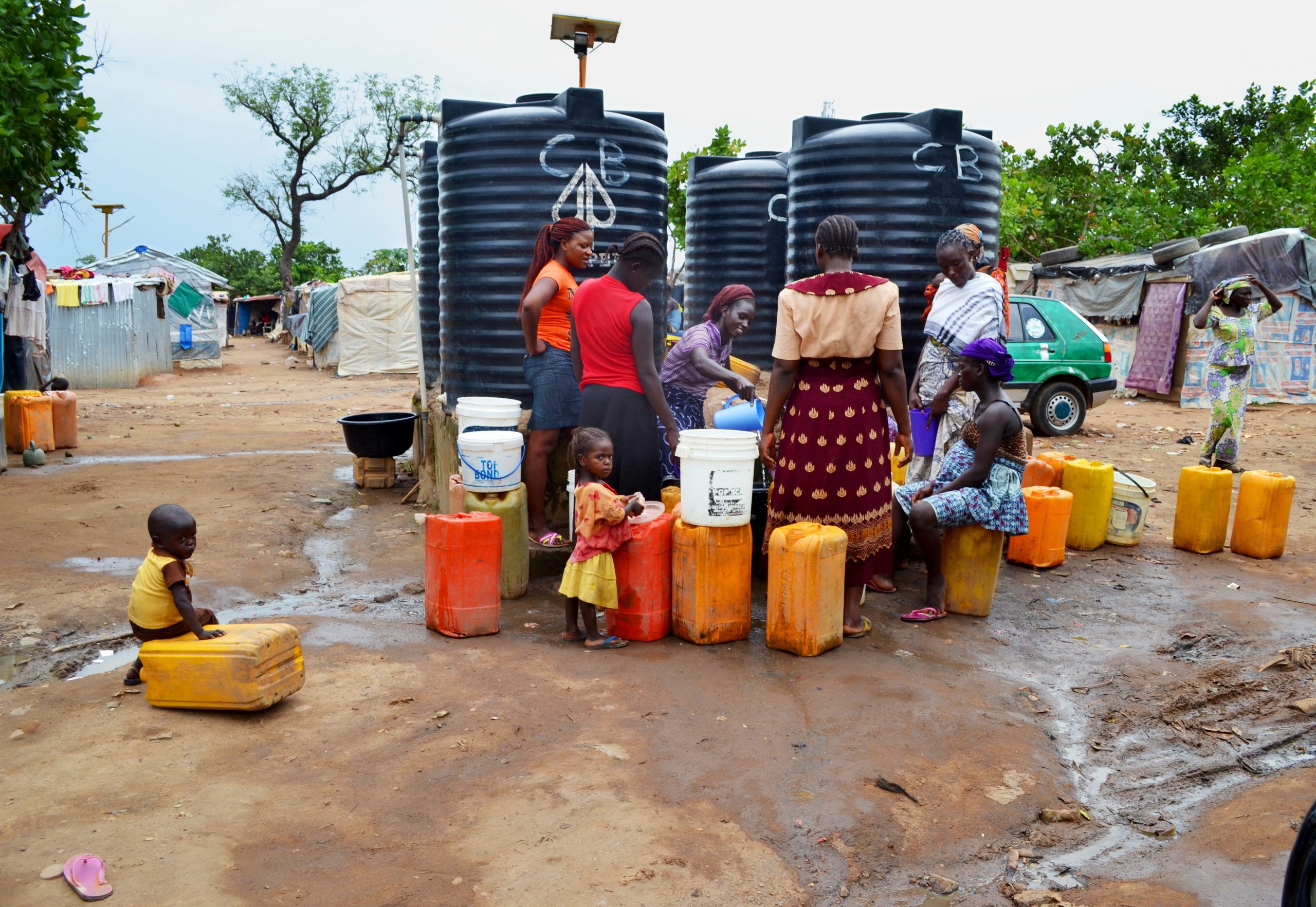
The 2017 Multiple Indicator Cluster survey indicates 68 per cent of Nigerians buy or source water from locations outside their homes.
The survey states that no fewer than 40 per cent of women are routinely out in search of potable water for family use in various communities across the country.
This becomes an extreme case in the Northern parts of the country, such as at the camps of the Internally Displaced Persons (IDP), New Kuchingoro in the Federal Capital Territory (FCT) Abuja, as shown in the photo above, where 83 per cent of homes have no drinking water within their premises.
This is followed by the South-South with 71 per cent and the North-Central with 70 per cent water burden. This results in affected persons scouting for water and in the process being exposed to contracting or spreading the coronavirus.
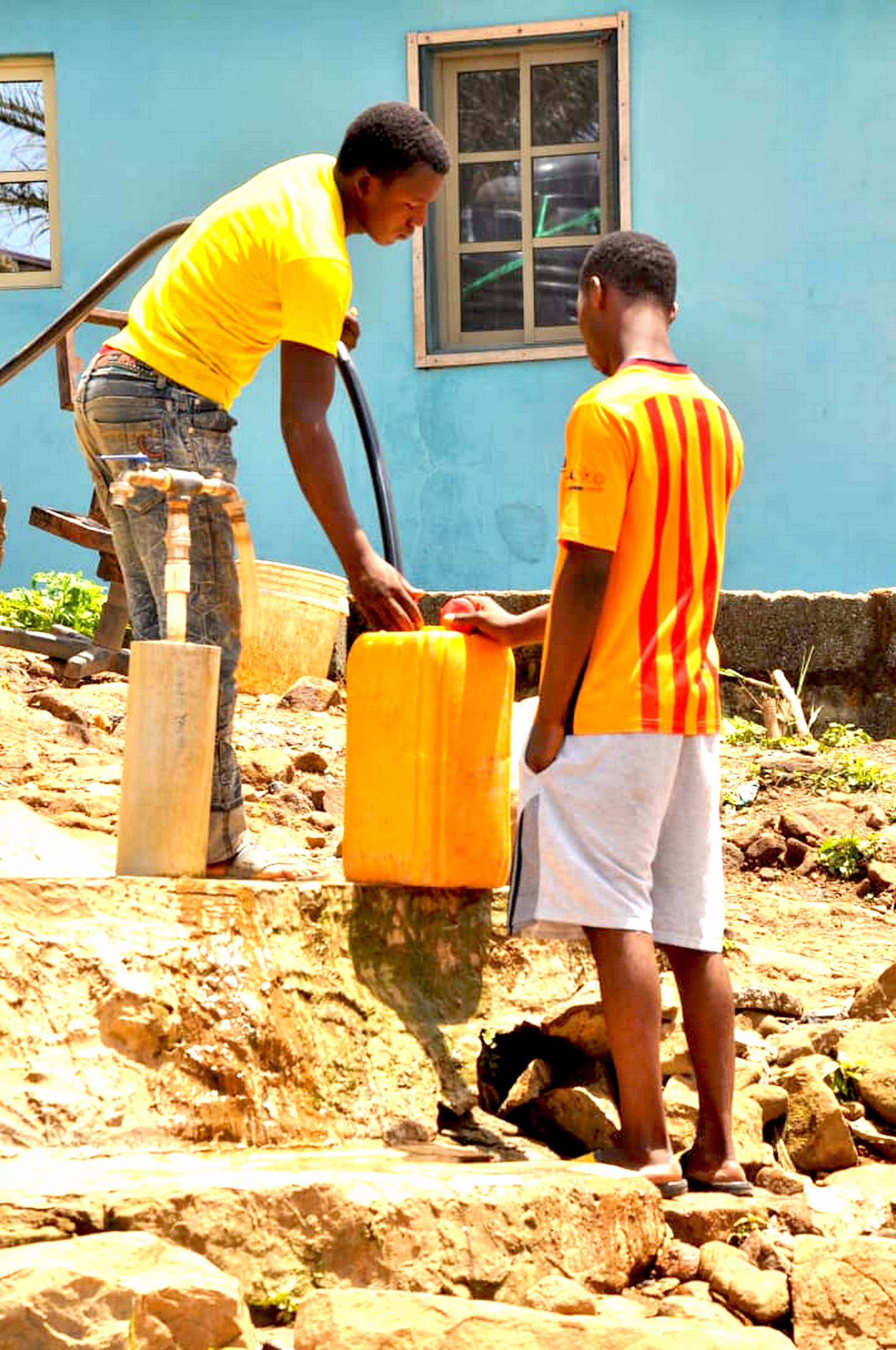
In many neighbourhoods, for instance, FCT, Abuja, house owners provide their own water through boreholes within their premises from which they sell to members of the public. People who make daily purchase of water often consider regular hand-washing a luxury.
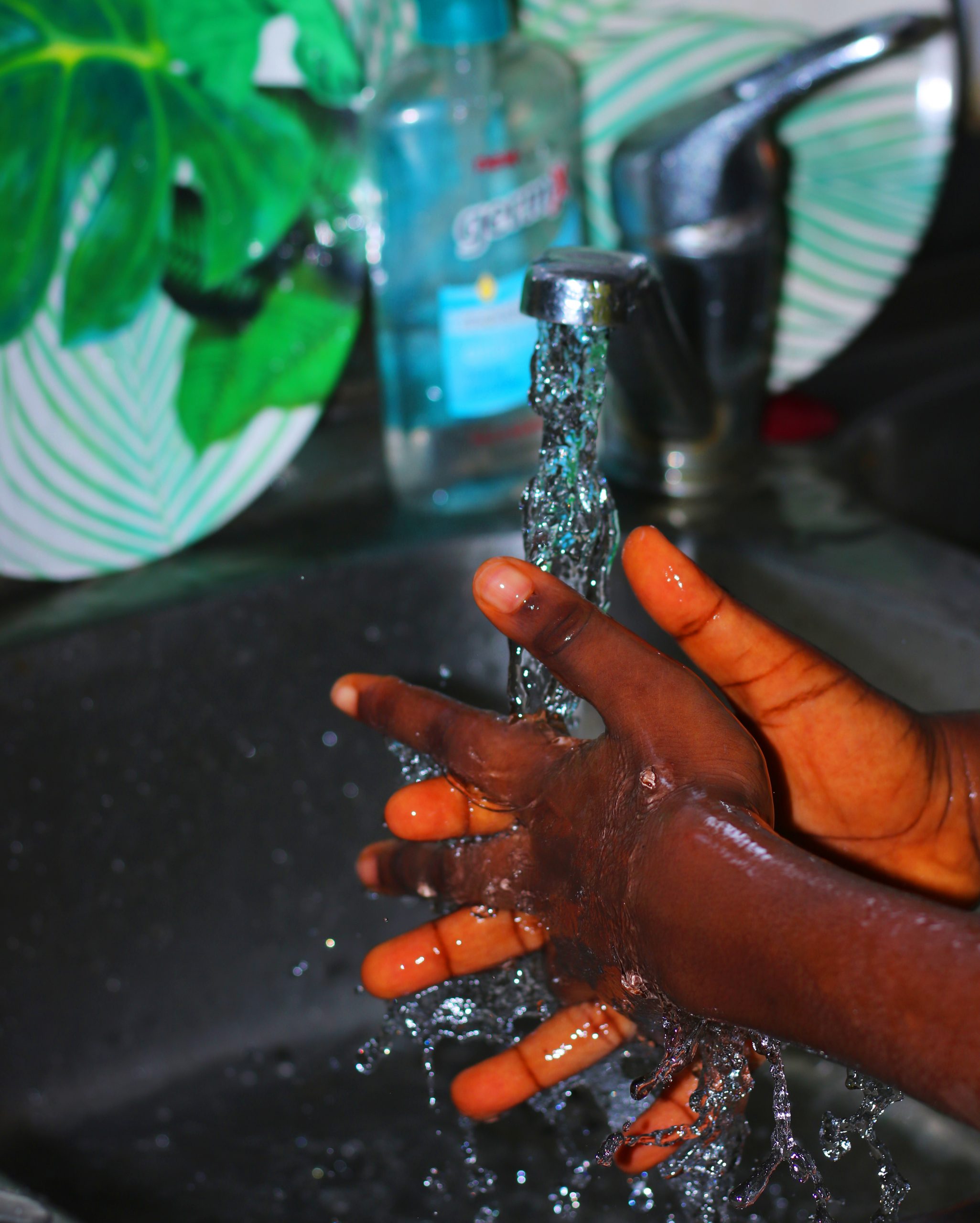
The WHO recommends regular hand-washing as one of the preventive measures for COVID-19. Medical and WASH experts say the need for improved access to water cannot be overemphasised.
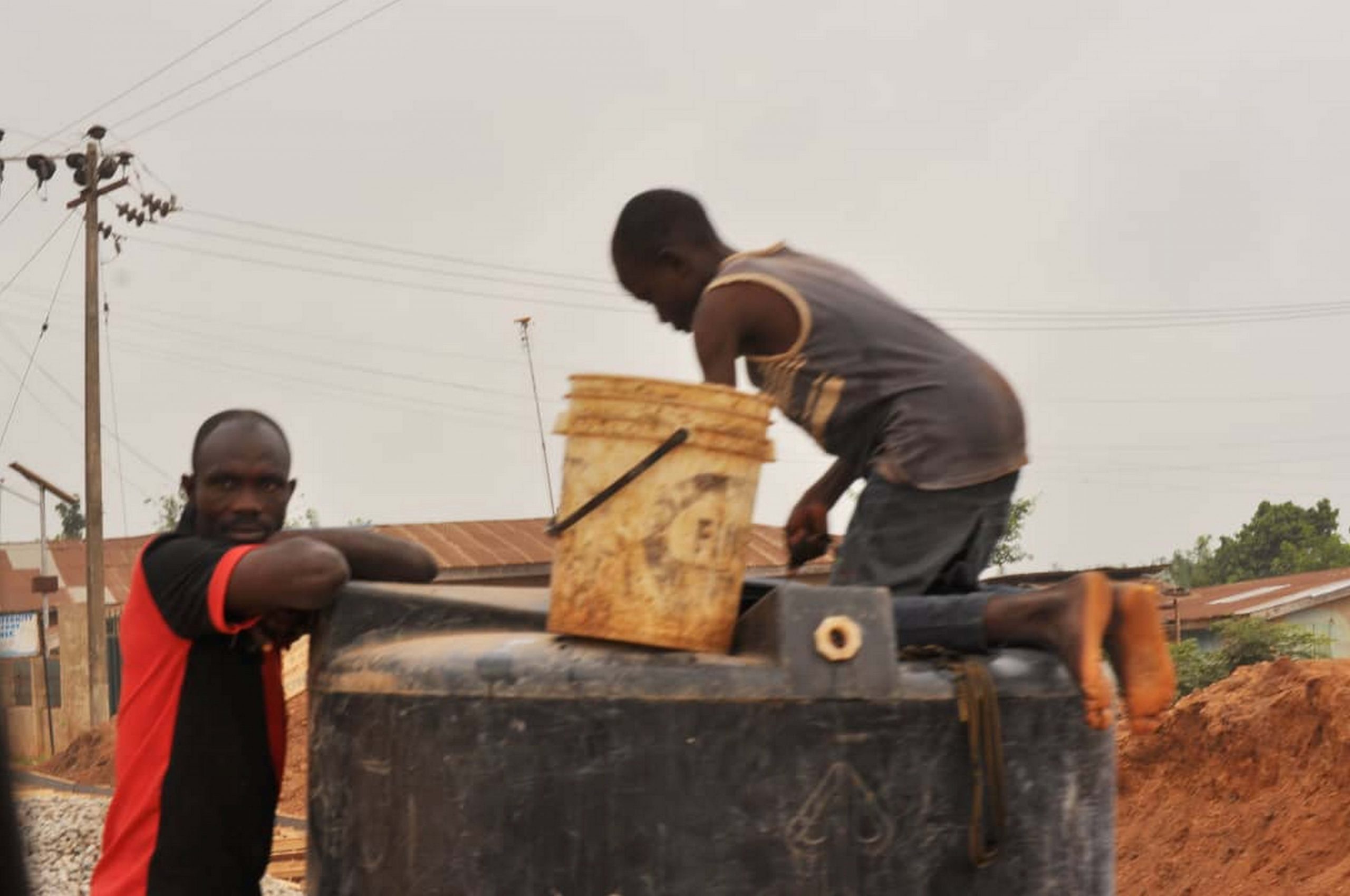
The 2017 Multiple Indicator Cluster indicates that Nigerian households such as in Ido, Oyo State, as shown in the photo above, depend mainly on external sources for their water supply because most homes do not have potable water within their premises.
This does not only put to scrutiny the quality of water but also how the water is fetched, as man-to-man transmission of COVID-19 can happen if proper preventive measures of contracting and spreading the virus are not extended to container handling.
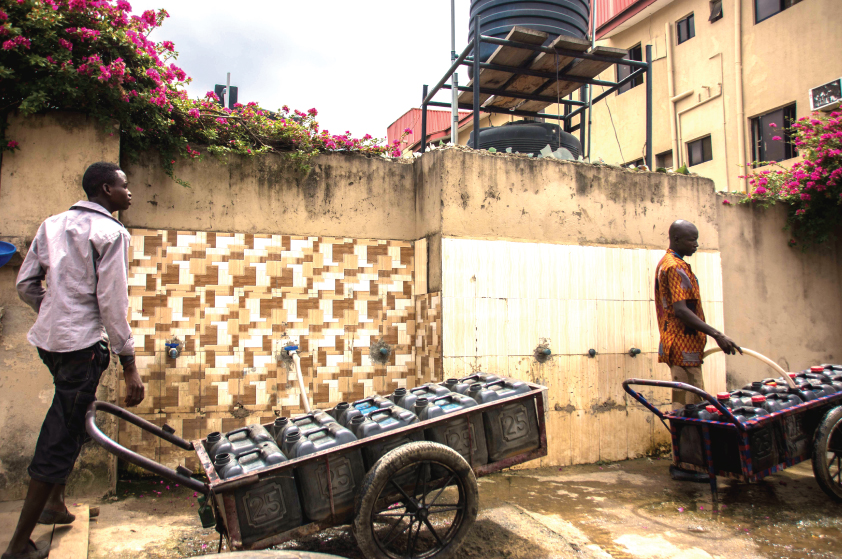
Adedeji, a virologist and immediate past Director of Laboratory Sciences at NCDC, says water vendors need to be educated on the mode of the transmission of COVID-19 and how to comport themselves while fetching water.
He says the Mai-ruwas need to be told about what is happening because if they are harbouring the virus, it can be easily transmitted to other people.
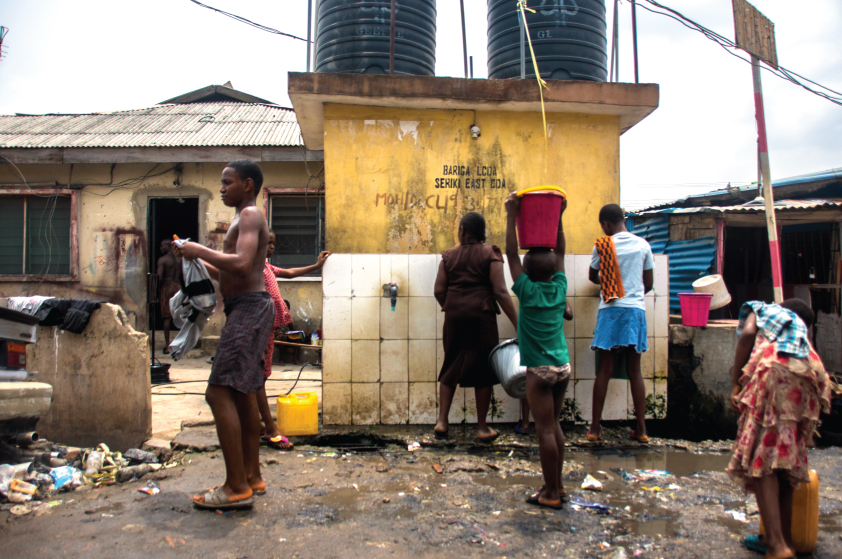
COVID-19 television, radio jingles and other publicity materials keep exhorting Nigerians to wash their hands with water and soap under running taps. This, however, is not the reality for over 60 million Nigerians as most homes do not have access to potable water in their premises.
The WHO says provision of access to safe water is one of the most effective ways to promote health. It is a powerful environmental determinant of health.
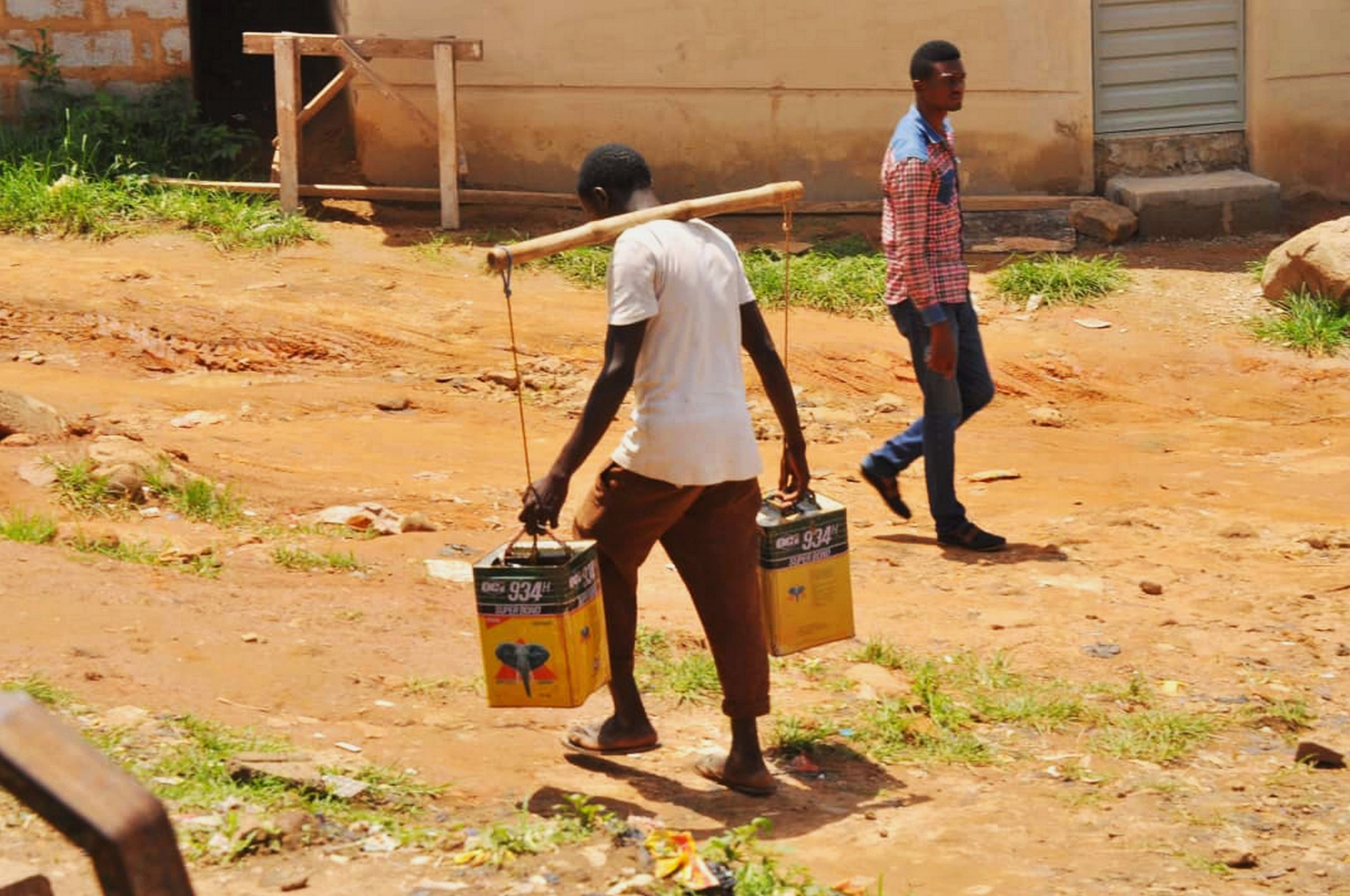
Many Nigerians buy water from sources that are suspect such as the street water vendor. In effect, water-lacking communities are no good places to be in a time of pandemic like COVID-19. Photo above is of a community in Abuja.
Statistics from global agencies such as the United Nations (UN) and the World Health Organization (WHO) indicate that many persons in Nigeria travel very long distances before they can access water. Many of such journeys, as in the photo above, recorded in Iseyin, Oyo state, are risky.
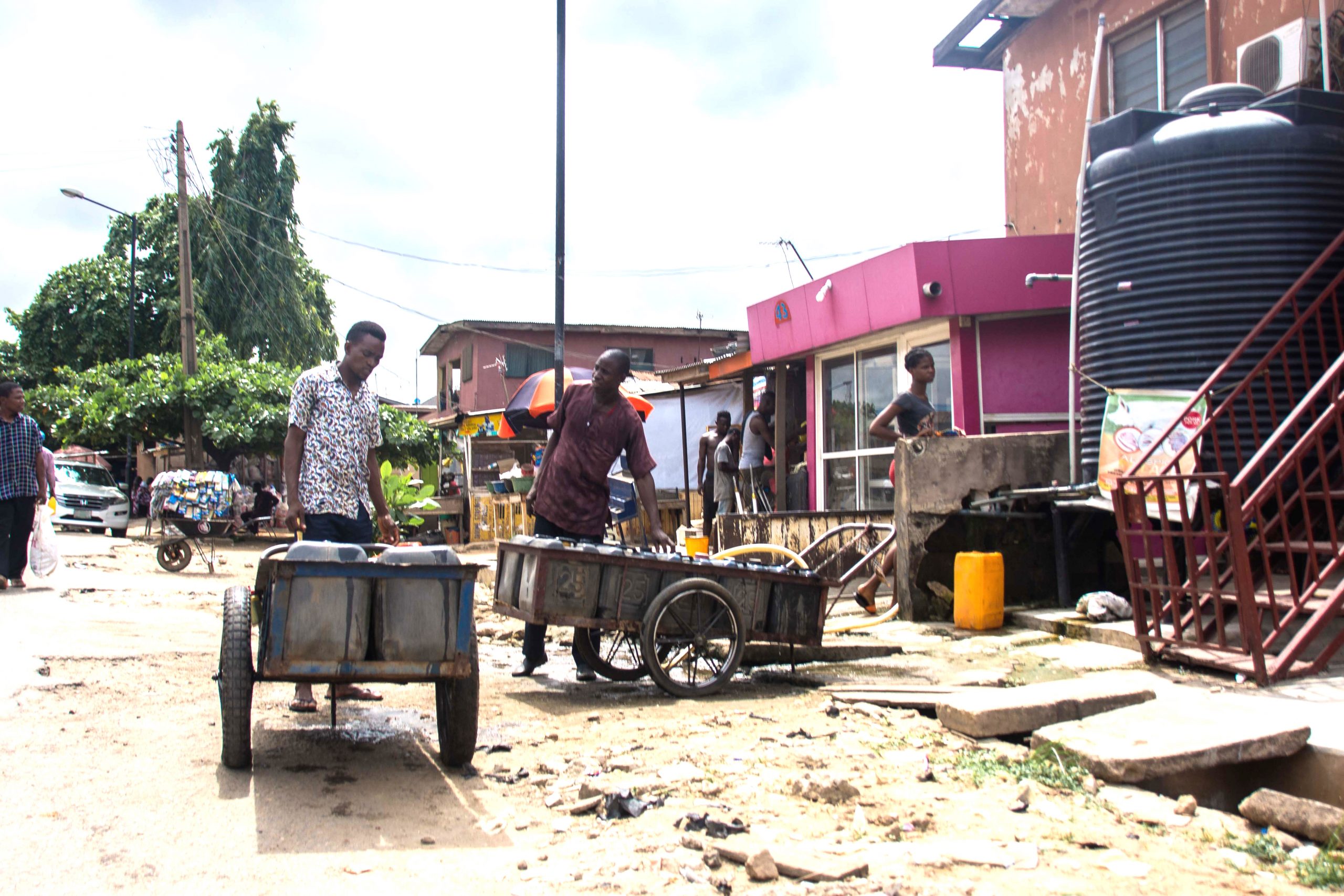
Adedeji warns that the services provided by street water vendors can accelerate community transmission of COVID-19 in Nigeria.
International standard practice is that nobody should go more than 100 meters to access potable water. This is not the reality for many Nigerians who not only travel long distances, but get water for their daily use from open wells.
At the open well where they get water daily, everyone fetching water uses their bare hands in handling the same plastic container which is put into the well. A person who has contracted the virus can spread it to others through this means.
After fetching water, the people travel long distances back home without observing social distancing.
In the month of March 2020, HumAngle spoke with many of the community dwellers who depend on wells for their daily water needs. They revealed that they barely have enough water in their homes to last them for a day. So, for these people, regular hand washing is not a priority.
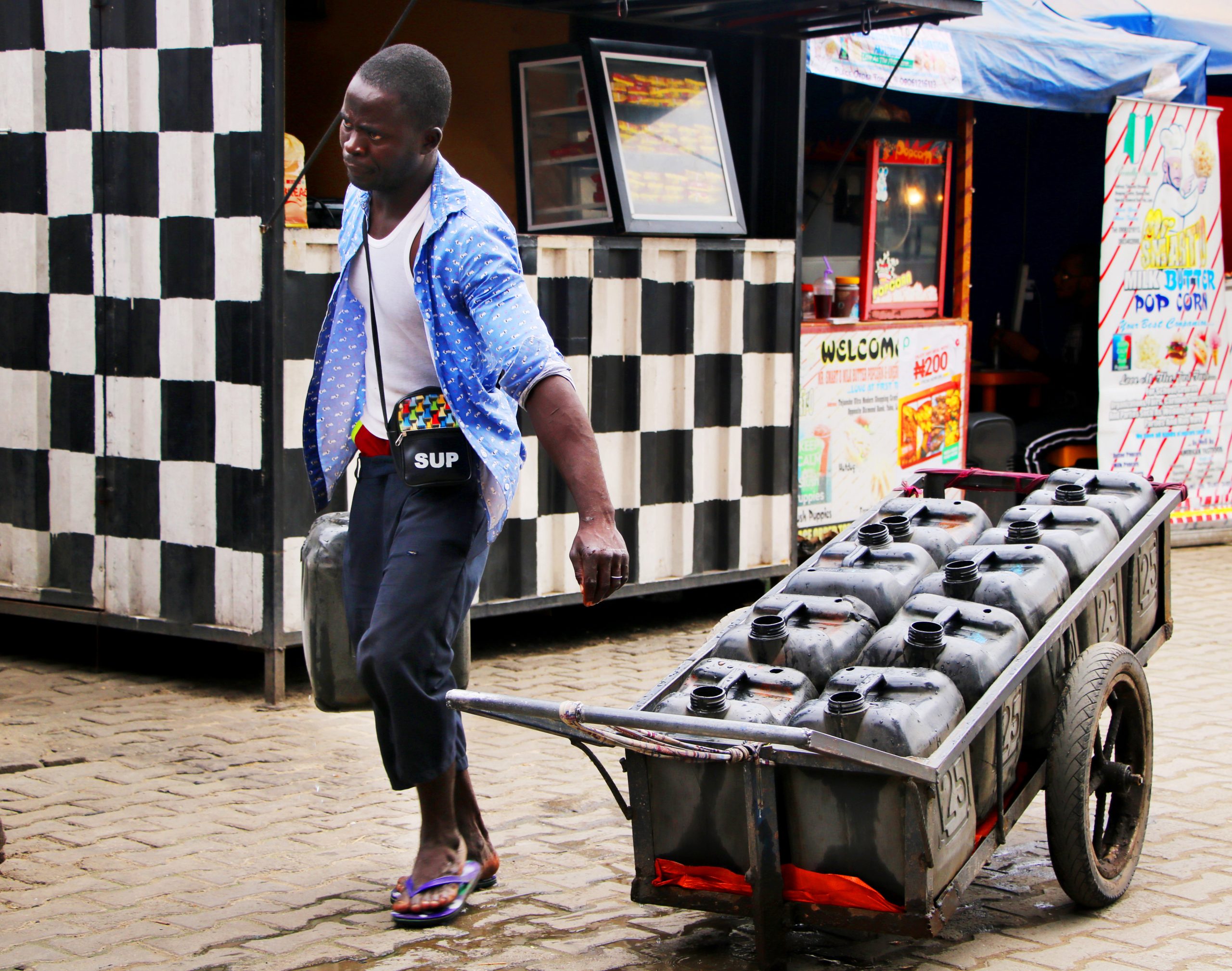
Potabl water supply is a huge challenge for many residents in Nigeria. They rely on water vendors popularly known as Mai-ruwa who, as is the case in Lagos State (as shown in photo above), often charge between N25 (0.08 dollars) and N50 (0.16 dollars) per 10 litre keg of water. The Mai-ruwa is renowned for not being hygienic. Medical experts say a Mai-ruwa who contracts the virus can spread it through poor handling of containers to his clients.
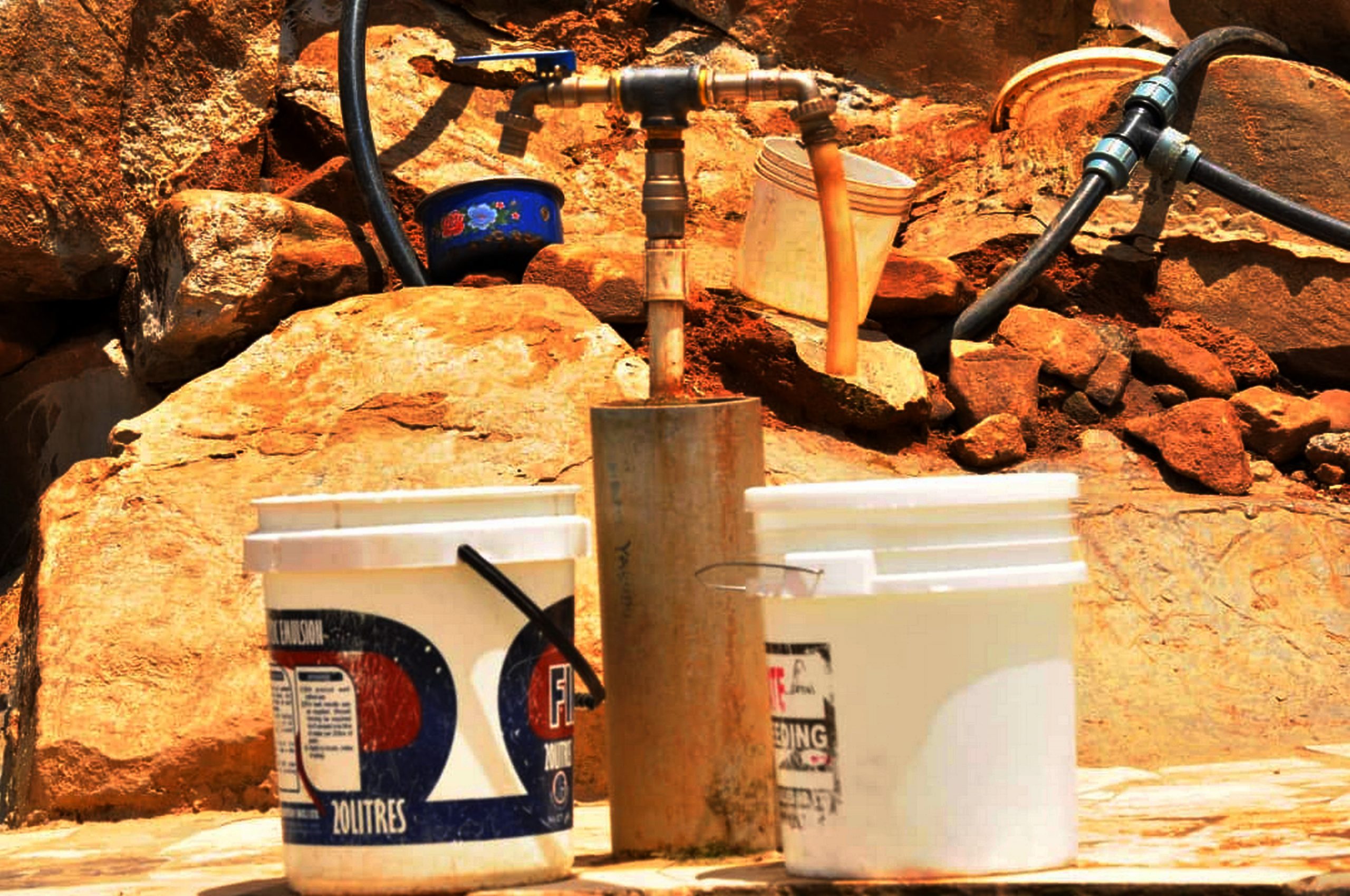
WASH experts say the Nigerian government should accelerate access to water in order to make a tangible impact on efforts to halt the spread of COVID-19 and other diseases. This can be done through the provision of makeshift water sources by sinking boreholes and erecting public taps in every community or ward – the lowest level of governance in Nigeria.
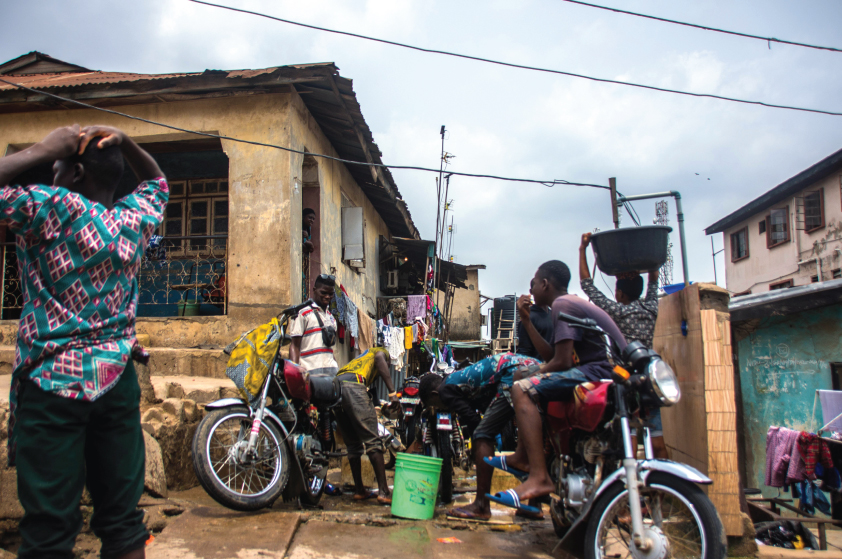
Access to and use of safe water will save most Nigerians from COVID-19 related fatalities. 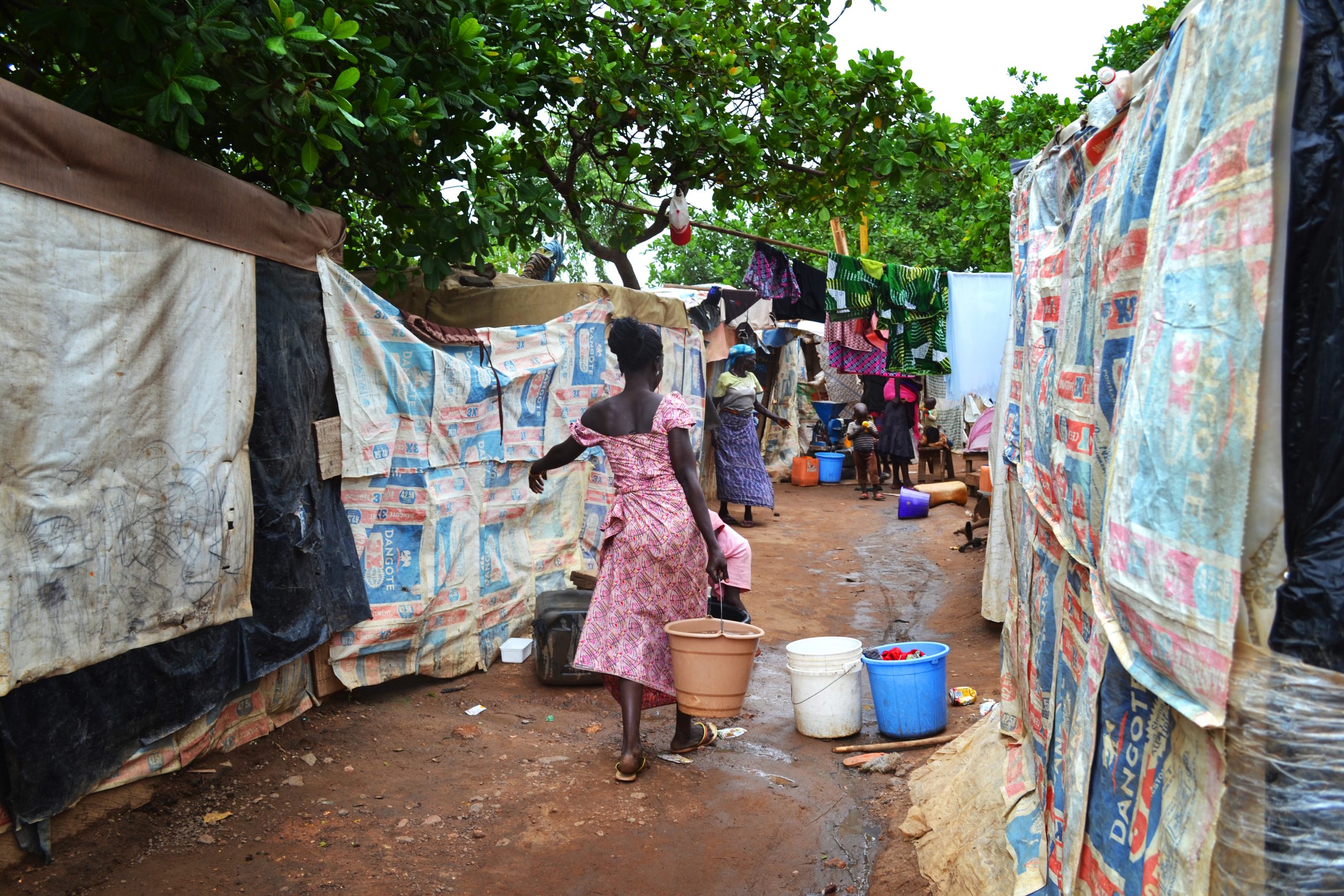
Except deliberate efforts are made to bridge the gap on access to potable water, Nigerians will not only continue to waste so much time in search of water but be at risk of contracting deadly diseases such as COVD-19.
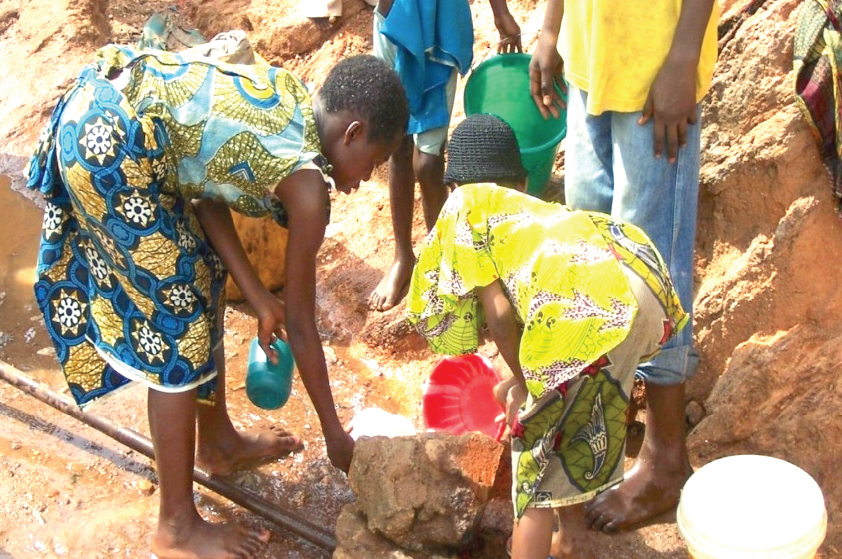
The examples of these girls in Osogbo, Osun State, modeling regular hand-washing habits to prevent COVID-19. The idea of infection may be a mirage for many rural communities in Nigeria.
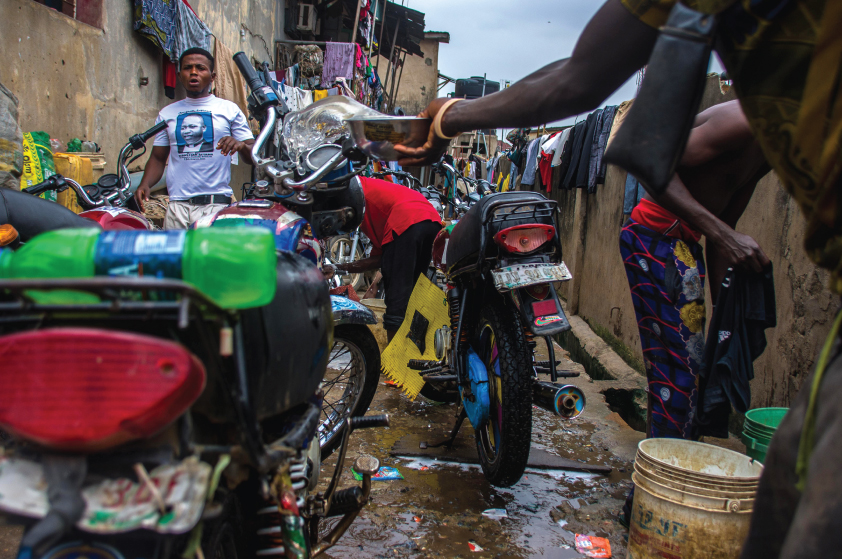
Except the Nigerian government shifts to better WASH investments, which in turn will address gaps in hygienic living, medical experts warn that curbing community transmission of COVID-19 may be arduous with serious consequences.
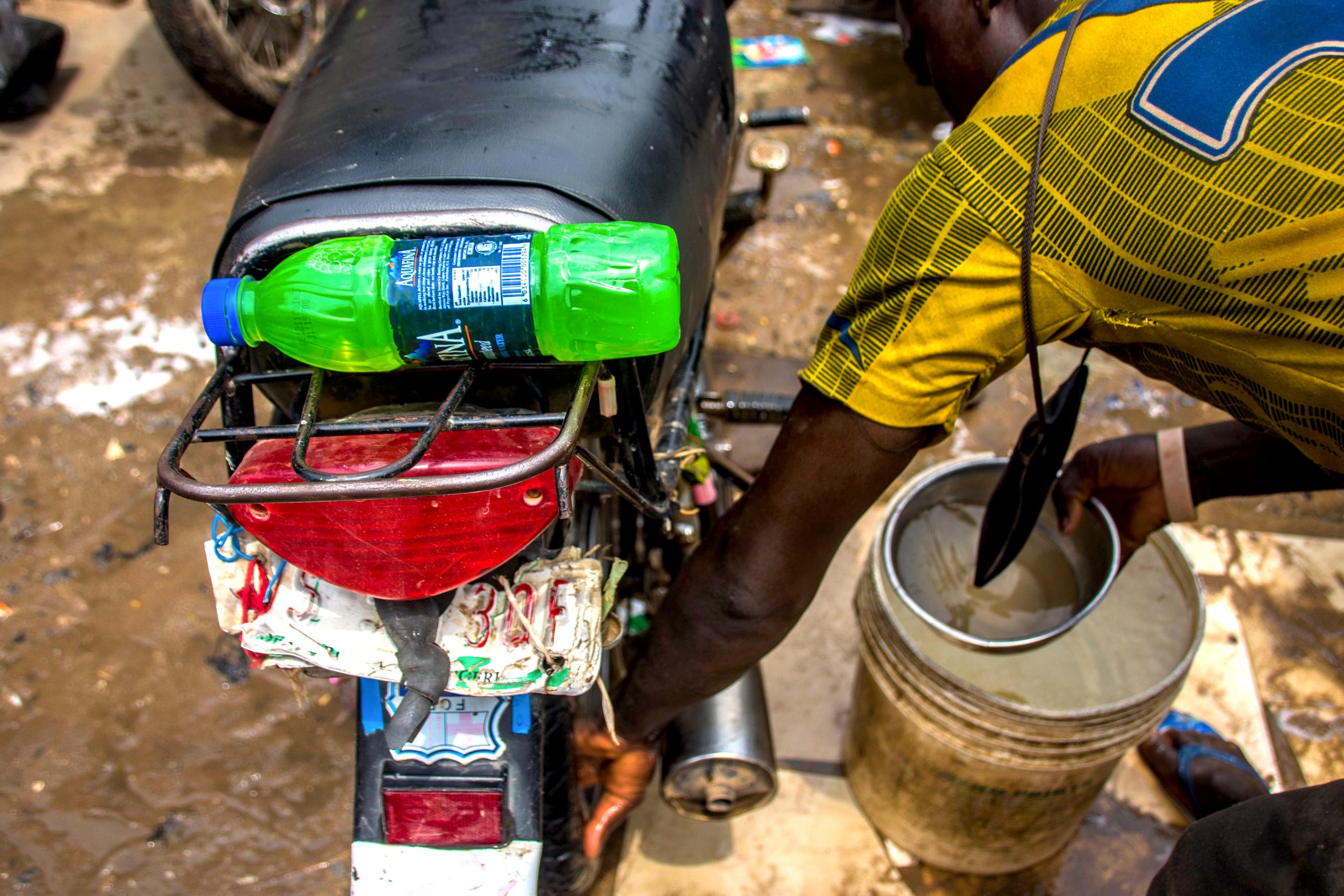
Water is critical in curbing the spread of COVID-19 but its unavailability is higher in rural areas compared to urban areas. Some 74 per cent of the population in rural areas suffer the water burden, while 59 per cent of the urban populace have similar experience.
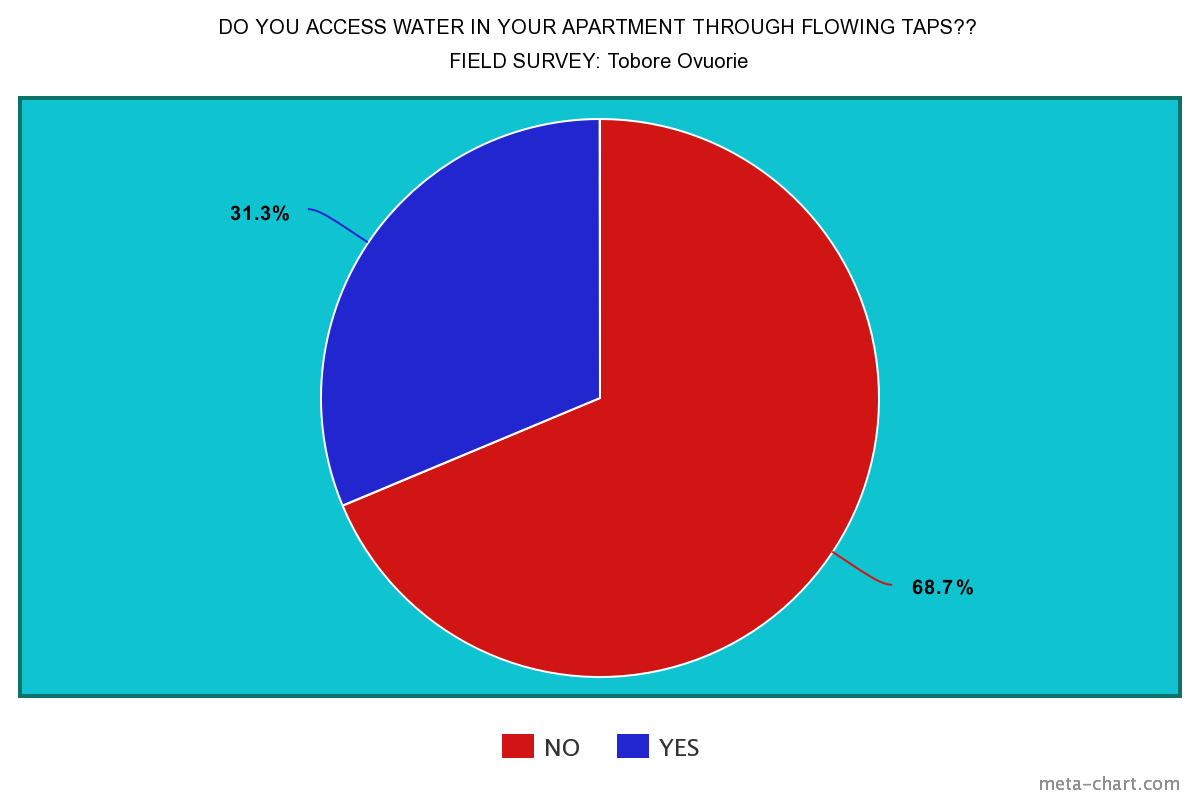
In a field research carried out by HumAngle from April 17 to April 20, 2020 in Ogun and Lagos states, Southwest Nigeria, most of the 67 respondents interviewed said they did not have water flowing from the taps in their homes.
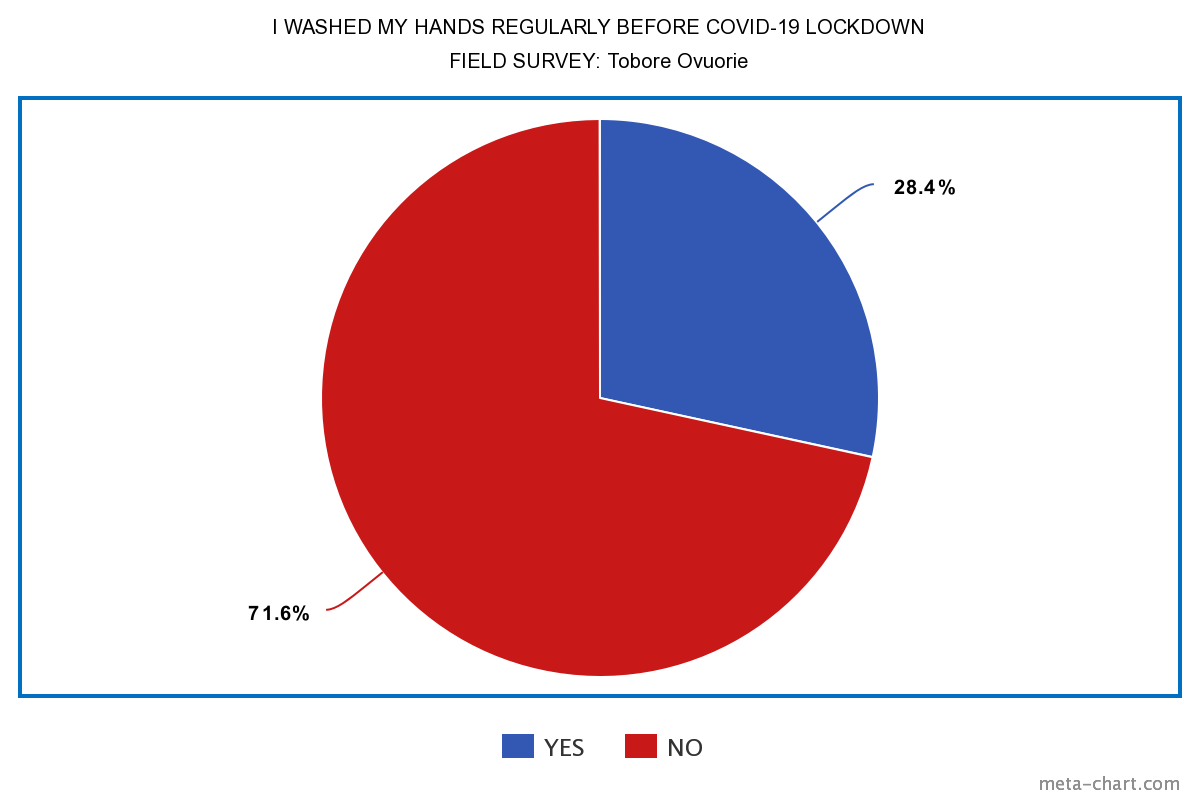
The respondents were 37 and 30 residents in Ogun and Lagos states respectively. Thirty-five of the respondents were females and 31 males of between the ages of 22 and 56 years.
Photo credit: Tobore Ovuorie
Support Our Journalism
There are millions of ordinary people affected by conflict in Africa whose stories are missing in the mainstream media. HumAngle is determined to tell those challenging and under-reported stories, hoping that the people impacted by these conflicts will find the safety and security they deserve.
To ensure that we continue to provide public service coverage, we have a small favour to ask you. We want you to be part of our journalistic endeavour by contributing a token to us.
Your donation will further promote a robust, free, and independent media.
Donate Here
